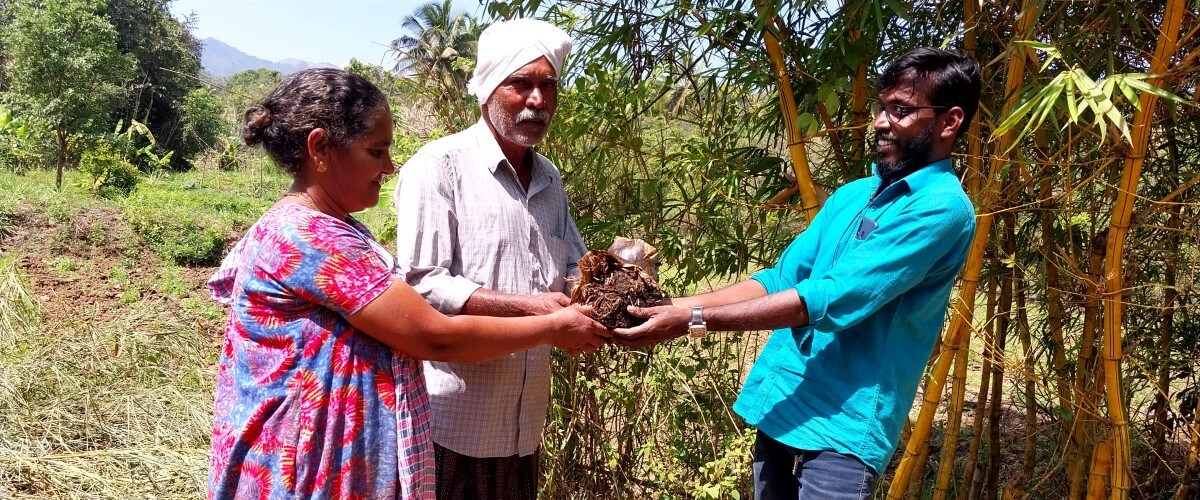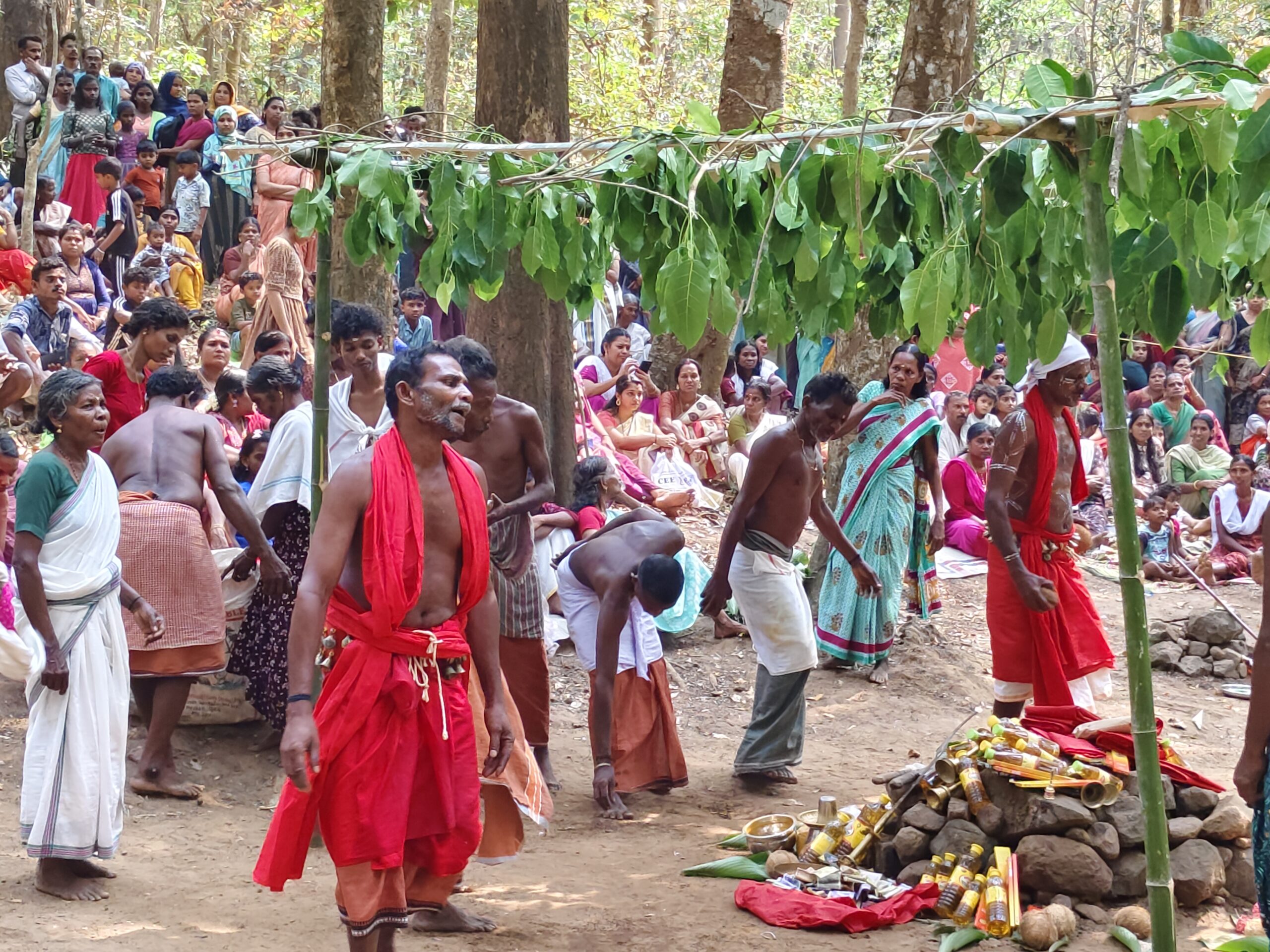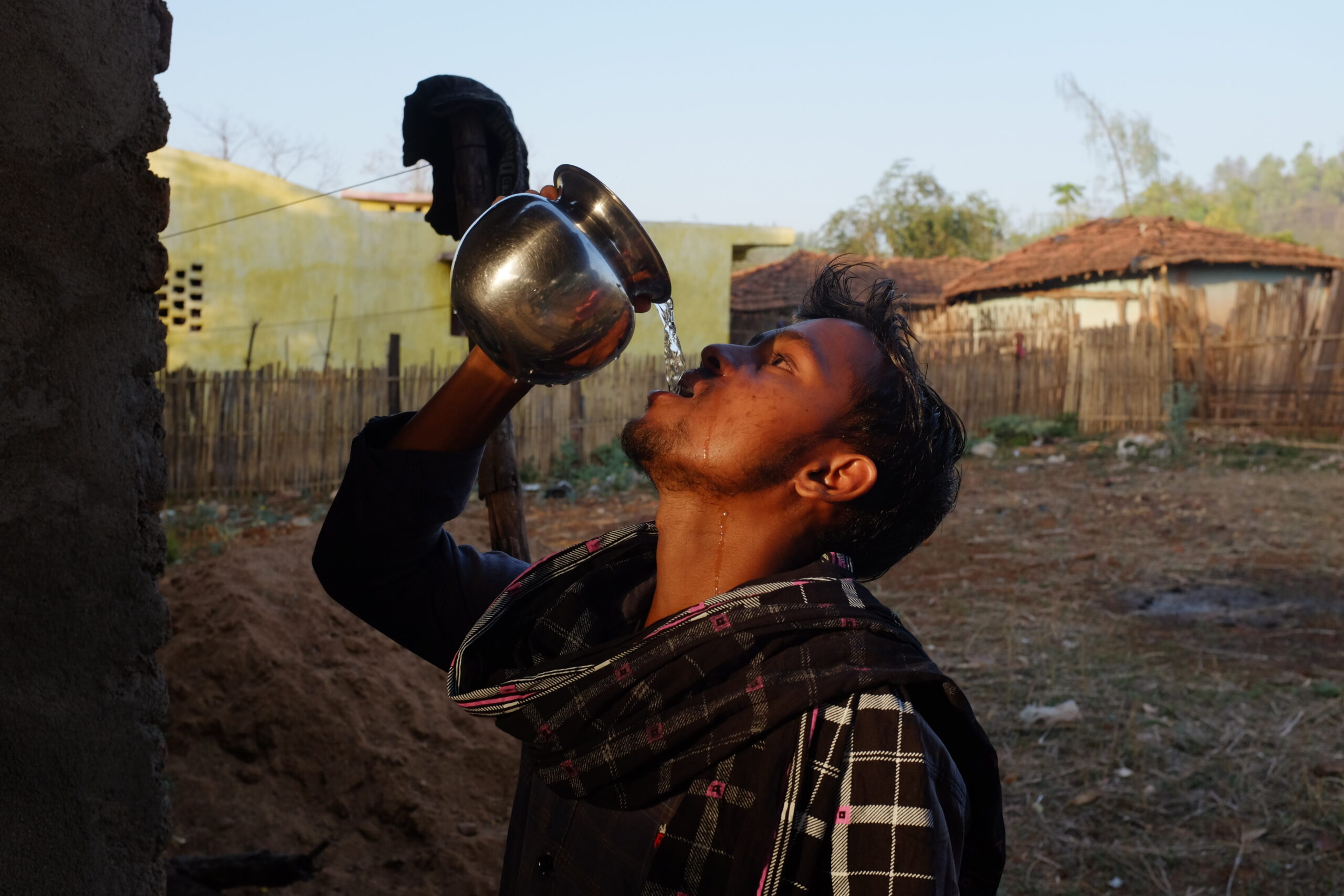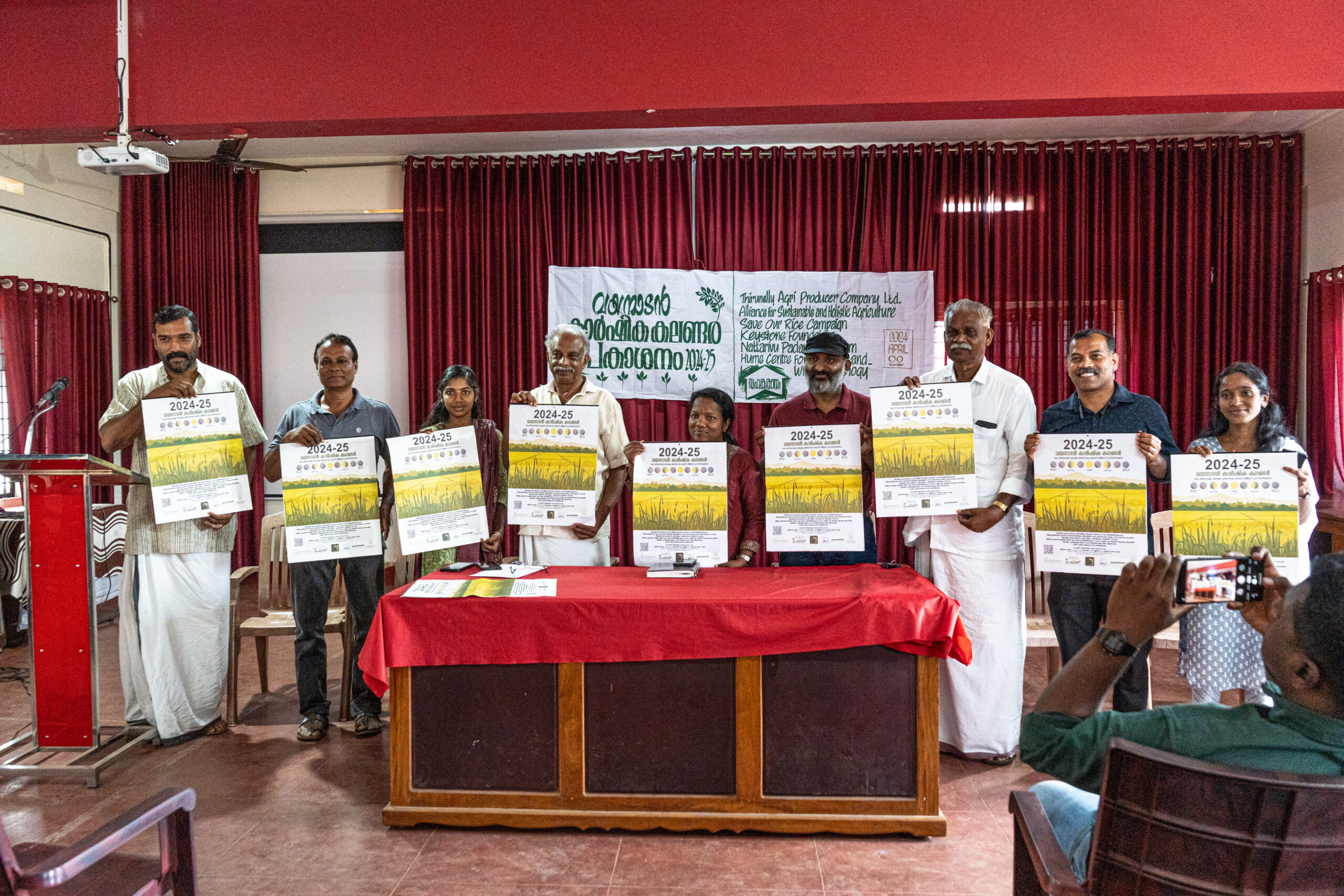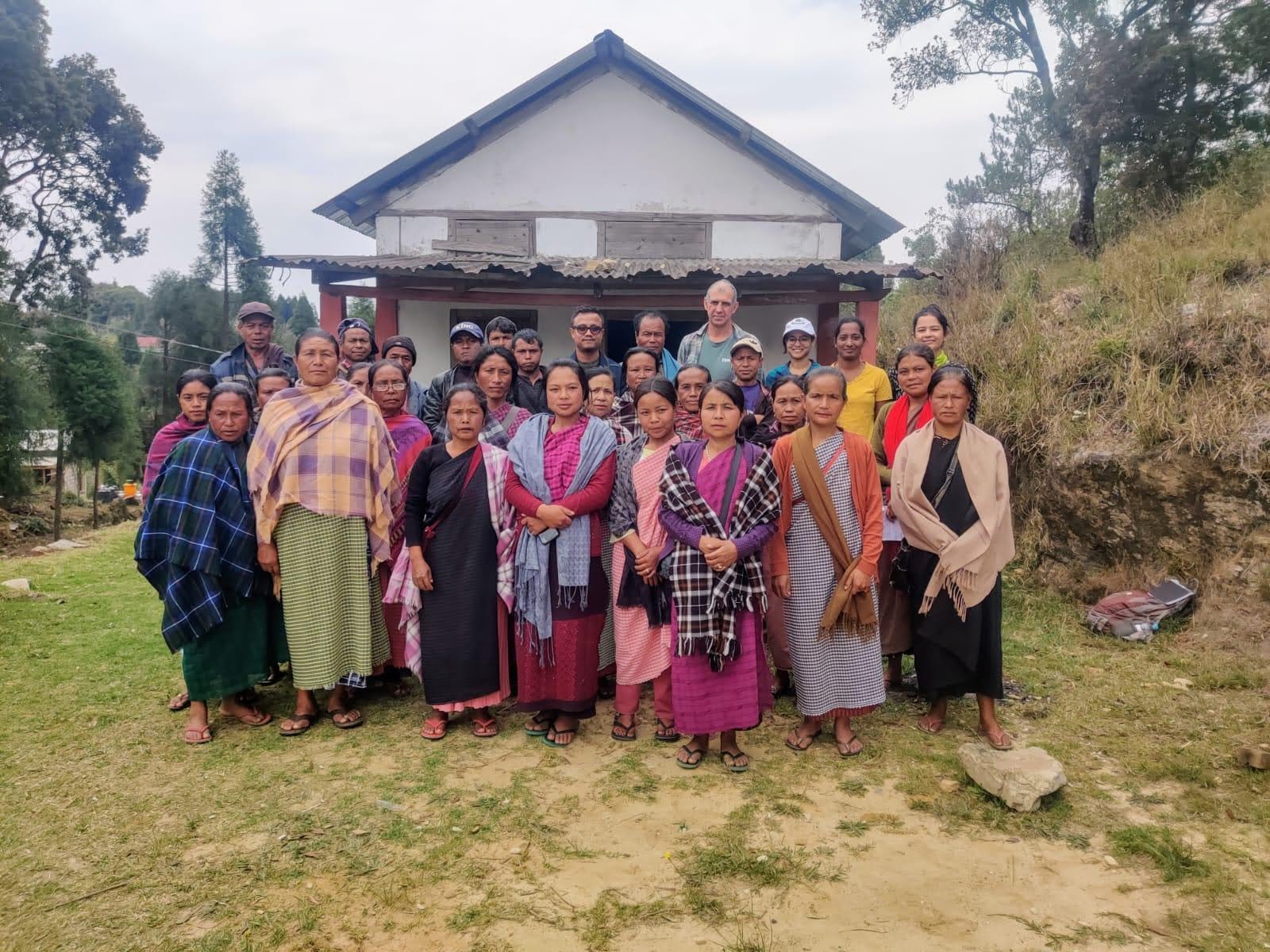Traditionally, countless varieties of local plantain species were cultivated in all districts of Kerala. Today, Wayanad district continues to host a major presence, with bananas being one of the most commonly cultivated crops here. However, many of these local plantain varieties are fast disappearing, with many already extinct. This is partially caused by the expansion of commercial banana farming that focus on a handful of high-yielding hybrid varieties which are also resource intensive, require high chemical inputs and vulnerable to climate impacts.
Large swathes of paddy lands have been converted in the past few years for the commercial cultivation of banana crops, leading to increased nitrogen content that adversely affect soil quality and eventually become breeding grounds for diseases like rice blasts. Given that traditional varieties require little to no chemical inputs unlike hybrid varieties and can also withstand tough conditions like droughts, we are attempting to bring them back in this landscape.
The project had already reached out to 152 farmers in the first phase which was completed by the end of January 2023 within the four Gram Panchayats (Thondarnadu, Thavinhal, Edavaka and Thirunelly) and Mananthavady municipality as well. We have made five local varieties of banana/plantain crops available to the farmers: Njaalipoovan, poovan, mysorepoovan, robusta and nenthran. Every farmer has received 10 saplings of each variety and a total of 50 banana saplings altogether. Each of these varieties will reproduce for at least eight years, except the nenthran variety, without requiring any additional care/inputs. In case of the nenthran banana plants, the farmers will get new saplings from each plant for a period of four years continuously. For all other plantain varieties, several saplings will naturally sprout from their roots, enabling farmers to freely distribute plants over the years and potentially expand cultivation while making an income. Apart from the banana saplings distribution, 25 kg. of organic inputs (i.e. thumboormuzhy compost) have also been made available to each of the banana farmers at a highly subsidized rate. Farmers received all crops with the support of the project.
The saplings were sourced from within the district itself. Between the 152 farmers that benefitted from phase one, a total of 15 acres of land will be transformed into native banana farms hosting 7,600 individual plants. We have also been exploring opportunities of insuring the upland banana crops as part of the intervention.
As far as the harvest is concerned, each farmer is expected to get a 500 kg. yield on an average in 10 months. At present, the market rate is Rs. 28 per kg., leading to a net worth of INR 14,000 per annum are expected from the total yield.
The income from the upland banana cultivation would be an additional source, aside from the farmers’ existing sources. They are also free to use the yield for self consumption, aiding their nutritional security. There is not much of additional cost required to maintain the crops as compared to the large scale hybrid banana cultivation.

